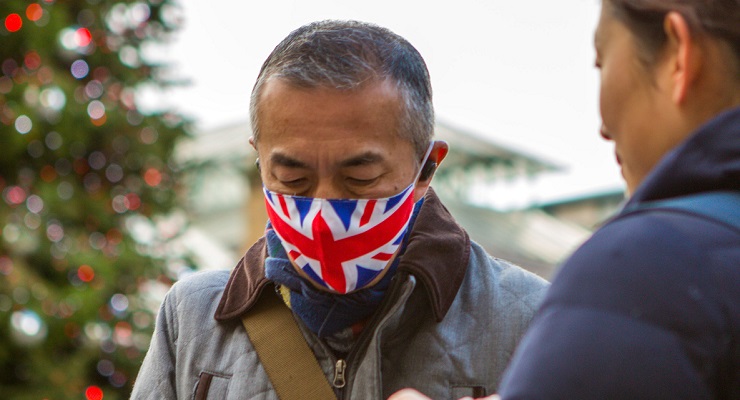
This morning UK Health Secretary Matt Hancock warned a new variant of coronavirus “may be associated” with faster spread of the virus in the south-east of England.
It’s not the first time politicians have warned of a virus mutation. Last month South Australian Premier Steven Marshall warned of a “very sneaky” COVID-19 strain (despite no evidence to suggest Adelaide’s strain was worse than any other).
The virus is always mutating
Viruses are constantly mutating, with every person infected with coronavirus likely to have a slightly different version, University of Queensland infectious disease specialist Paul Griffin tells Crikey.
“All viruses mutate and this coronavirus is actually mutating at a slightly slower pace than most viruses,” he said.
Around the world scientists have been mapping the genetic sequence of the virus and watching to see if any variants change its behaviour, making it more transmissible or more deadly.
So far just one strain, D614G, has mutated to a point where it’s a little more effective at spreading. This strain has been circulating in Australia for months.
“We’re analysing this closer than any pathogen in the past,” Griffin said.
The UK and SA officials have differed in their approach discussing these changes. While SA officials milked the disaster narrative with no evidence, Hancock said there was “nothing to suggest” the variant caused worse disease or that vaccines would no longer work.
Spike in cases not due to the mutations
Average daily hospital admissions in England have increased by 13% in the past week with more than 20,000 new cases and 232 COVID-related deaths recorded in the past 24 hours.
There’s also been a spike of cases across Europe in the lead-up to Christmas, with harsh lockdowns announced.
“While numbers are going up there they’re going to in a lot of parts of the world due to timing and their winter,” Griffin said.
Germany tightened its restrictions last week and the Netherlands has closed schools, museums, gyms and hairdressers. In Belgium, at least 75 people have been infected after a man playing Santa Claus visited a residential care home.
London is set to go into “tier three” restrictions, with no guests allowed in the home and pubs and cafes open only for takeaway. These restrictions will be slightly eased across Christmas to allow three households to form a bubble.
India is also battling a third wave. Intensive care units are full or nearing capacity and doctors are seeing more and more young people presenting with serious symptoms, worsened by pollution as families meet for Hindu holiday festivals.
The vaccine is no silver bullet
This week the UK started doling out the first 800,000 doses of Pfizer’s vaccine to frontline workers and those aged over 80. But the vaccine starts being effective two weeks after the first dose. Efficacy climbs to 95% seven days after the second dose — given three weeks after the first — is administered.
The vaccine is also being administered across the US. White House staff members were initially some of the first in line but this has been delayed following media coverage.
Hospitals around the US have warned of a crisis of capacity in intensive care units with more than 16 million cases and 300,000 deaths.








Nice to see that what I contributed, quite some months ago now, has finally found its way into an article from Cky (kinda); at least for the first half of the article.
As for vaccines for viruses, you should have mentioned that the vaccine itself is a diminutive version of the virus. Antibodies have to develop and there is variation across individuals as to antibody development.
Moreover, the vaccine is good for only a particular strand of the virus. A significant mutation implies the requirement for a new vaccine. Similarly for antibiotics in the case of bacteria.
Given the Ro for the current virus to be about 5 (roughly : an infected person can infect five others) the immunization rate needs to be more than 60% just to be in the race and a tad better than 80% to arrest (or surpress) the virus.
The show will run for some time yet.
Polls on vaccination recalcitrance – everywhere – suggest getting to 80% might be a tad difficult and take long enough for the earliest lots of vaccinations to wear off, assuming they’re as effective in the short run as claimed. I think your closing statement might be an understatement.
I almost added that the virus has to want to be surpressed by white male (or at least male) domination. Vaccination v. Fee Will?
Still hoping for the Darwinian Effect, me.
Factor or variable not mentioned is the political and/or social aspect with the former often hedging their bets on measures e.g. lockdowns or not related to the ‘economy’, and personal responsiblity in following preventative measures, or not.
Further, is how a nation’s social security and health system copes and supports society, or not.
False dichotomy of simplistic binary of health measures vs. economy (often presented as social vs. libertarian), when it is far more complicated…
You seemed to miss the most important revelation of the past week, that being that the vaccine may prevent you getting Covid, while still allowing you to shed the virus. That’s significant.
And finally Erasmus gets something right about this virus. This thing still has a way to run yet.
IF the vaccine is even semi effective, the prospect of many millions of immune carriers mingling suggests ideal conditions for further mutation.
Meanwhile the asymptomatic, naturally immune wander around, as infectious as someone coughing up their lungs who are at least in hospital.